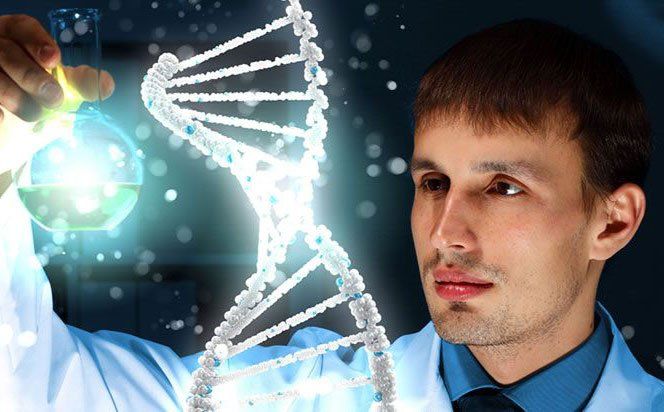MY ACCOUNT
TF2B
Transcription Factor IIB
- Species: Human
- Expression Host: E.coli
- Tag: His-tag
- Purity: 90%
- Molecular Weight: 36.9 kDa.
- Gene Accession Number: NM_001514.
Applications
1 unit equals 1 nanogram of purified protein. 1 unit is sufficient for gel mobility shift assay in a 20 µl reaction to super-shift TBP-DNA complex; 10 units are sufficient for a 25 µl reconstituted transcription assay; and 100 units are sufficient for a protein-protein interaction assay detected by immuno-blot system. For research use only.
Formulation and Storage
Protein is stored in 20 mM Tris-Cl (pH 8.0), 20% Glycerol, 100 mM KCl, 1 mM DTT and 0.2 mM EDTA buffer and kept at -800C, Avoid repeated freeze thaw cydles.
SYNONYM
TF2B; TFIIB, RNA polymerase II transcription factor IIB; S300-II; general transcription factor TFIIB; GTF2B.
Targe Gene Sequence
MASTSRLDAL PRVTCPNHPD AILVEDYRAG DMICPECGLV VGDRVIDVGS EWRTFSNDKA TKDPSRVGDS QNPLLSDGDL STMIGKGTGA ASFDEFGNSK YQNRRTMSSS DRAMMNAFKE ITTMADRINL PRNIVDRTNN LFKQVYEQKS LKGRANDAIA SACLYIACRQ EGVPRTFKEI CAVSRISKKE IGRCFKLILK ALETSVDLIT TGDFMSRFCS NLCLPKQVQM AATHIARKAV ELDLVPGRSP ISVAAAAIYM ASQASAEKRT QKEIGDIAGV ADVTIRQSYR LIYPRAPDLF PTDFKFDTPV DKLPQL
Background
The transcription factor IIB (TFIIB) is an essential factor for transcription by RNA polymerase II. TFIIB has been shown to be required for selective binding of RNA polymerase II, TFIIF and TFIID-DNA complex, and for specifying the start site of transcription. Human TFIIB is a single, 35 kDa polypeptide, homologous to yeast factor ε, the product of the SUA7 gene (1-4).
This His tagged recombinant TFIIB is isolated from an E. coli strain that carries the coding sequence for human TFIIB under the control of T7 promoter (5).
Recombinant TFIIB has been used for in vitro transcription assays and gel mobility shift assays (1, 4, 5).
SDS-PAGE with Coomassie Blue Staining

References
1. Malik, S. et al., (1991) Proc. Natl. Acad. Sci. USA 88, 9553-95572. Conaway, R. et al., (1993) Annu. Rev. Biochem. 62, 161-190
3. Orphanides, G. et al., (1996) Genes & Dev. 10, 2657-2683
4. Buratowski, S. et al., (1989) Cell 56, 549-561
5. Ge, H. et al., (1996) Methods Enzymol. 274, 57-71
6. Tubon et al., (2004) Mol Cell Bio, 24:2863-2874
7. Glossop et al., (2004) Nuc Acid Res, 32:1829-1835
8. Zhang et al., (2003) Mol Cell Bio, 23:6958-6972
DISCLAIMER
This products is recommended For RESEARCH USE ONLY and is Not qualified for Use in Diagnostic or Therapeutic Procedures.




